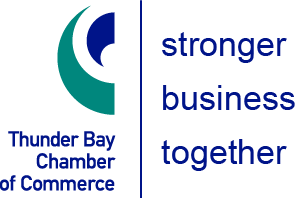At the 2022 Annual General Meeting of the Ontario Chamber of Commerce, the Thunder Bay Chamber of Commerce will co-sponsor the following resolution:
Issue
Currently, Toronto is the only municipality in Ontario that charges a second, municipal, land transfer tax (MLTT). Over the last year, several municipalities have passed motions asking the Province to amend the Municipal Act to give all municipalities the power to charge their own MLTT. Municipalities are looking for additional revenue sources while in some circumstance reporting record surpluses, due to the differences in Budget setting and Generally Accepted Accounting Principles and for Municipalities, Public Sector Accounting Standards.
Implanting a Provincewide Municipal Land Transfer Tax will effectively and unjustly remove billions of dollars from the economy and have severe effects on job substantiality, housing affordability and economic recovery.
Background
Ontario is in the middle of a housing affordability crisis. Home prices in Ontario have risen at historic rates in the last ten years. Year-over-year price growth in Ontario was over 30% in December 2021. A recent poll by Abacus Data shows that Ontarians see high home prices and the rising cost of living as top issues facing the province. The rising cost of living (50%) and housing affordability (39%) are critical for Ontarians, ahead of June’s election.
High cost of living and an inability to enter the housing market will result in families leaving their communities and even the province further exacerbating the labour shortages plaguing economic recovery and sustainability. Research conducted this past summer by Abacus Data on behalf of the Ontario Real Estate Association found nearly half of prospective home buyers were considering leaving the province to find an affordable home elsewhere.
As of December 2021, the average price of a home in Ontario is $922,735. That is up 22.8% from the same time in 2020 when the average was $751,655. While affordability has historically been primarily a GTHA phenomenon the past few years have seen rural and remote communities succumb to the affordability issues.
An additional land transfer tax would cost Ontario families almost $15,000 on an average priced home. A new MLTT will make it more difficult for Ontario to attract young talented workers, hurting the Province’s long-term competitiveness. Our communities, residents, and businesses simply cannot afford this tax.
Recently released key insights from the Ontario Chamber of Commerce 2022 Ontario Economic Report included:
- Most sectors (62 percent) are facing labour shortages and expect to continue facing them over the next year.
- The business community’s main policy priorities this year are business taxes and electricity costs. Small businesses are more preoccupied with financial support such as commercial rent relief, while larger businesses are more focused on long-term infrastructure, regulatory, and workforce development issues.
- Remote work arrangements are expected to partially continue in 2022. While most organizations are optimistic about technology, capital costs and access to digital skills are pervasive barriers to technology adoption at the organizational level.
There is considerable concern that while Municipalities currently focus on the residential tax class, potentially migrating workers to other provincial jurisdictions and removing disposable income from the economy reducing profitability and capital investment, that once the Municipal Act is open to amendment the MLTT will result in tax policy creep to the commercial and industrial tax classes further burdening investment in economic growth and recovery.
In 2014 research was conducted by Altus Group Economic Consulting for Ontario Real Estate Association demonstrating significant loss of jobs and economic activity in Mississauga, London, Hamilton, Ottawa and Thunder Bay would occur if a municipal land transfer tax is imposed in those cities. A provincial wide municipal tax is levy would be added on top of the existing provincial land transfer tax and would be therefore a double or second tax.
The economic impact of a new tax of this kind in the five Ontario cities studied would total more than $1 billion and a loss of more than 10,000 jobs. These results are part of a study, Potential Economic Implications of the Municipal Land Transfer Tax in the Selected Ontario Municipalities. The effects in each city are predicted as follows:
- Mississauga: Loss of $482 million in economic activity; loss of 3,157 jobs; loss of $163 million in wages and salaries.
- London: Loss of $270 million in economic activity; loss of 1,771 jobs; loss of $92 million in wages and salaries. (2014)
- Hamilton: Loss of $342 million in economic activity; loss of 2,240 jobs; loss of $116 million in wages and salaries. (2014)
- Ottawa: Loss of $543 million in economic activity; loss of 3,558 jobs; loss of $184 million in wages and salaries. (2014)
- MLTT ad in Thunder BayThunder Bay: Loss of $60 million in economic activity; loss of 392 jobs; loss of $20 million in wages and salaries. (2014)
Compounding the concerns are related issues to Municipal budgeting and the presentation of financial statements as governed by Generally Accepted Accounting Principles for Municipalities, Public Sector Accounting Standards. A full report is available from the C.D Howe Institute Commentary 460, Two Sets of Books at City Hall? Grading the Financial Reports of Canada’s Cities, https://www.cdhowe.org/public-policy-research/two-sets-books-city-hall-grading-financial-reports-canada%E2%80%99s-cities.
“In nearly all Canada’s larger cities, obscure financial reports – notably inconsistent presentations of key numbers in budgets and end-of-year financial reports – hamper legislators, ratepayers and voters seeking to hold their municipal governments to account.
The differences in accounting methods in most cities’ budgets as compared to the presentations of their financial results are large and have real-world consequences. By using cash rather than accrual accounting, cities exaggerate the costs of investments in infrastructure, hide the cost of pension obligations, and make it hard to match the costs and benefits of municipal activities to taxpayers and citizens. Moreover, many cities present their budgets late, after significant money has already been committed or spent, do not publish their financial results in a timely way, and bury key numbers deep in their reports.”
Ina follow up document the Solving the Municipal Budget Mystery: Fiscal Accountability in Canada’s Cities, 2021 https://www.cdhowe.org/public-policy-research/solving-municipal-budget-mystery-fiscal-accountability-canadas-cities-2021 the authors William Robson and Miles Wu conclude that:
“Canada’s cities are central to the lives of most Canadians and absorb commensurately large shares of Canadians’ incomes. City councillors, taxpayers and voters need clear information about their finances if they are to hold officials and elected representatives to account for the quality 16 Ontario’s Municipal Act prevents municipalities from approving a budget for the year following an election in the same year as the election. As a result, municipal elections in October 2018 prevented Ontario municipalities from presenting their 2019 budgets until January 2019. Many did not present until February, March or even April – not consistent with legislative control of public funds. and cost of municipal services. Cities will be under financial stress in the post-COVID era, elevating the importance of good understanding of, and intelligent debate about, municipal finances.
The budgeting practices of most major Canadian municipalities are not up to the mark. Municipalities should present budgets that are consistent with PSAS and that readers can compare easily with their subsequent financial statements. Municipalities should produce information that is more accessible and timelier. Before Canadians grant their cities more taxing powers or increase the support they receive from senior governments, they should insist on better transparency and accountability for cities’ use of public funds. The recommendations in this Commentary would help raise the financial management and fiscal accountability of Canada’s municipalities to levels more in line with their importance in Canadians’ lives.”
Municipalities should look elsewhere, not to a Municipal Land Transfer Tax on local homeowners that they and businesses cannot afford. Ontario is in the middle of a housing affordability crisis and struggling to secure a footing for sustainable economy recovery an growth, this where all levels of government need to collaborate to make home ownership more affordable, stimulate economic prosperity and not introduce a new tax that will add thousands of dollars to the cost of living.
Recommendations
The Ontario Chamber of Commerce urges the Government of Ontario to:
- Not impose new taxes, including municipal land transfer taxes, on Ontario homeowners and business, that will restrict housing supply by limiting sales volumes and make the housing affordability crisis worse.
- Support a review with the inclusion of stakeholders of the Municipal Act to update the municipal taxation system to better align with modern municipal economies, promote access to housing, and simplify the system.
- Use all the tools at their disposal to help municipalities build more affordable homes for families and foster an environment for economic stability, sustainability, and growth.
- Work with Municipalities to amend the property tax regime and modernize the transparency of budget setting and financial reporting.















